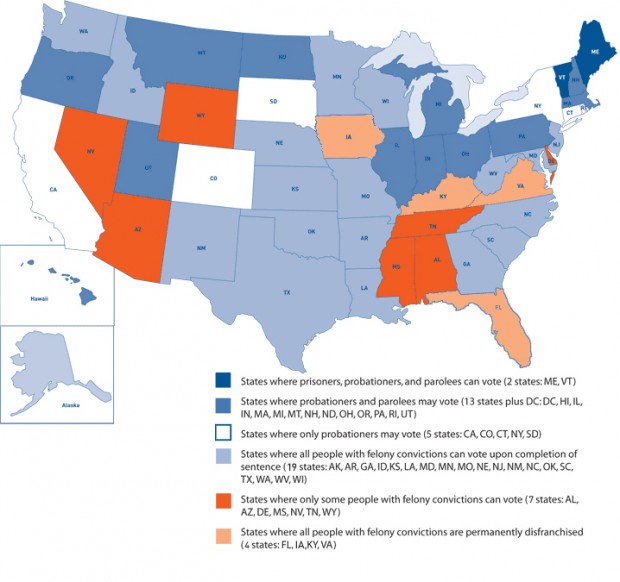 In California, felons serving time in prison or county jail are denied their right to vote. So too are ex-felons who have served their prison terms but are still on parole.That amounts to a fairly significant population - many thousands of California residents - who have temporarily lost their right to vote as a result of criminal convictions.
In California, felons serving time in prison or county jail are denied their right to vote. So too are ex-felons who have served their prison terms but are still on parole.That amounts to a fairly significant population - many thousands of California residents - who have temporarily lost their right to vote as a result of criminal convictions.
(Most inmates in county jail awaiting trial or serving time for a misdemeanor, or who are on probation, can still vote, according to the California Secretary of State's voting guide for current and former inmates).
And this raises an important question: is voting a privilege that should be denied to people who commit crimes, or is it an inalienable right?
Most states in the U.S. seem seem to agree with the former idea. In fact, only two - Maine and Vermont - allow their prisoners and parolees to continue voting.
According to The Sentencing Project, 5.3 million Americans (1 in 40 adults) were unable to vote - disenfranchised - in 2008 due to a felony conviction. That figure is expected to rise to nearly 6 million for this election, including 1.4 million African-American men.
